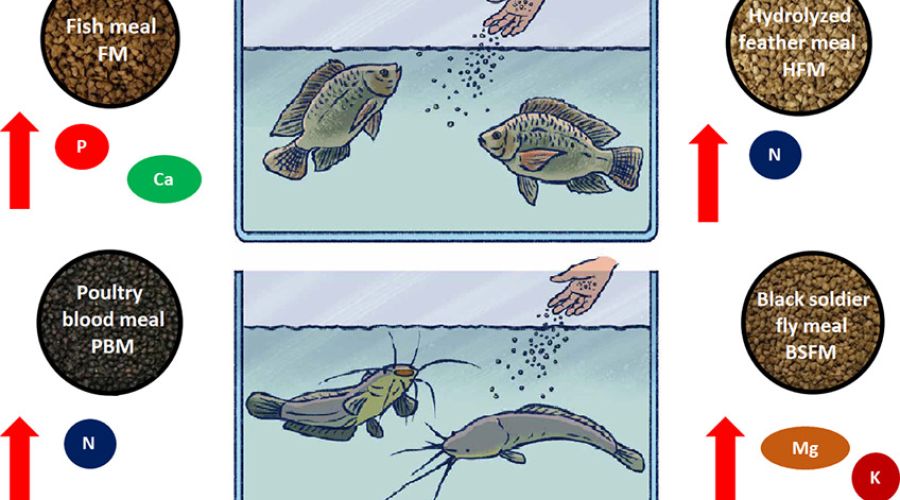Super-sustainable aquaponics: Nutrient manipulation using circular fish diets

Aquaponics, i.e. the combination of fish farming and growing plants in hydroponics, is a hallmark of circular food production model. Most of the nutrients needed for plant growth in aquaponics come from the metabolic activity of the fish, i.e. from the fish feed. The nutrient profile of fish feed meets the requirements of individual fish species and is designed for high nutrient retention efficiency. Hence, the nutrient profile of fish wastewater often does not meet the requirements of plants, and it is necessary to supply nutrients using inorganic fertilizers. Fertilizers have an environmental footprint and weaken aquaponics’ circular, sustainable hallmark. If the aquaponics is to live up to its truly circular image, the dependency on supplemental plant fertilizers (with inorganic ones) needs to be gradually decreased.
Presently the European Commission vows on promoting a future that would embrace a ‘circular bioeconomy framework’. This framework demands a paradigm shift in thinking, changing focus from increasing productivity (presently) to raised resource use efficiency (future). Waste is not a waste, but resource in a circular framework. Future bioeconomy emphasizes the development of bio-based solutions in food systems.
Members of the Laboratory of Nutrition, together with German colleagues from the Leibniz-IGB, recently contributed to the development of this field by compiling three fish diets in which they replaced expensive and unsustainable fish protein with circular alternatives including insect meal, feather meal and blood meal. Apart from their circular nature, these meals have a diametrically different nutrient composition compared to fish meal and can thus be a source of missing nutrients for plants in aquaponics. This has also been shown experimentally, where effluent from fed fish (African catfish and herbivorous piranha) showed a better nutrient profile for plants, while fish growth was not affected. Based on this pilot experiment, the researchers will continue to further develop aquaponic diets for fish.
Detailed information can be found in the original article: Gebauer, R., Brügmann, A., Folorunso, E.A., Goldhammer, T., Gebauer, T., Schöning, V., Bittmann, S., Knopf, K., Mráz, J., Kloas, W., 2023. Species-and diet-specific aquaculture wastewater nutrient profile: Implications for aquaponics and development of sustainable aquaponics diet. Aquaculture 568: 739307. https://doi.org/10.1016/j.aquaculture.2023.739307.
Written by: Ing. Radek Gebauer, Ph.D.
